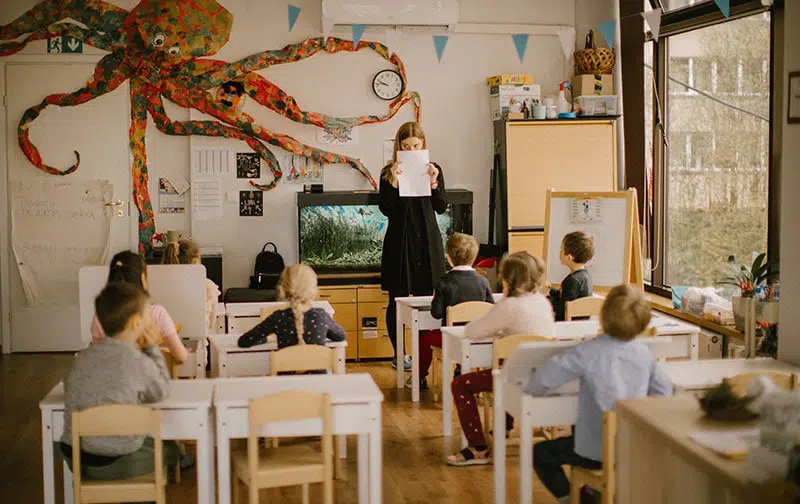The classics already warned us of the conflict between speed (Chronos) and the time needed to do things correctly (Kairos). Sages like Plato or Aristotle have already alerted us about the importance of managing our own leisure and time for ourselves. Other pedagogical referents such as Rousseau, Piaget or Dewey theorized about the need to adapt the child’s education, not to overload the study plans and not to “burn” phases, emphasizing that the child is not a miniature adult, but a specific person that need a time for learning. In the Parentes Educational Network we are fortunate to see the effectiveness of slow schooling seeing how happy and happy our children are at the Šeimų Darželis school in Lithuania, where children from 2 to 6 years old work along with this pedagogical method, called Pedagogy of the Snail.
Different studies show that western society is living at a frenetic pace. Paradoxically, despite having many tools for managing and saving time, we find that we increasingly have less of it. To challenge this dizzying environment, movements have arisen that seek to rebel against this accelerated pace, such as the so-called ‘slow movement’. The educational field is not oblivious to this problem and pedagogical initiatives and approaches have arisen that try to combat said pace at school level, including the so-called ‘slow education’.
Based on a study carried out in Italy on Pedagogia della Lumaca, devised by the teacher, Gianfranco Zavalloni, an attempt is made to develop his pedagogy by identifying those who influenced his educational proposal, known in Spain as La Pedagogía del Caracol (Pedagogy of the Snail). Furthermore, this study also aims to reveal how the proposal could be established, identify the principles on which it would be based and to outline some of its educational purposes. The study has been carried out under a qualitative methodology, through techniques such as a bibliographic and documentary review of Zavalloni’s works, and several interviews with his closest personal and professional acquaintances. According to the data obtained, it can be said that, more than an approach, a pedagogical model, or a methodology, it is a pedagogical trend from which an educational method, from a child-centered perspective, can be established. As with slow education, one of the aims of Pedagogy of the Snail is to offer a framework to those pedagogues who value time in education and who seek to provide their children with the values required to be masters of their own time.
